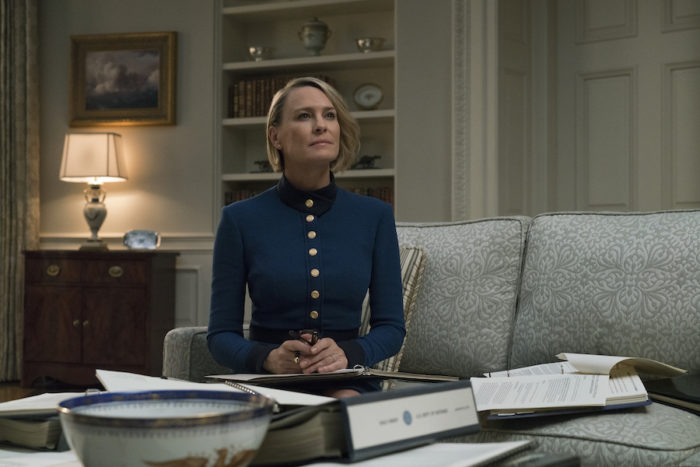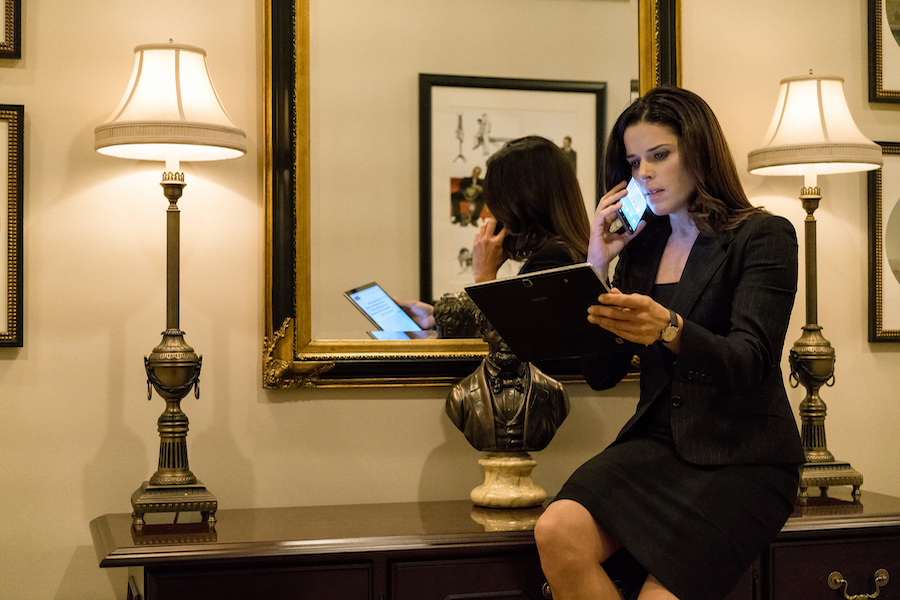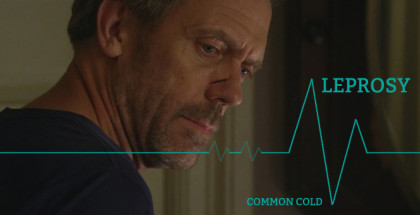Trumping facts with fear: Why House of Cards Season 5 is more topical than ever
David Farnor | On 08, Jun 2017
Warning: This contains mild spoilers for House of Cards Season 5 and major plot details about Season 4.
“These are dangerous times.” That’s the message put out by the Underwood administration in Season 5 of House of Cards. Premiering in May 2017, it’s a phrase that sounds like an understatement. That’s the problem facing all political dramas in the wake of Donald Trump’s election last year: reality makes fictional politics seem ordinary, leaving shows such as Homeland, House of Cards and Designated Survivor struggling to remain current, relevant or even just interesting. Season 5 of Netflix’s drama, though, is the most topical it’s ever been.
With Beau Willimon no longer at the showrunner helm, the omens weren’t great for the series’ return, especially after a Season 4 that felt like two halves of two different stories: Frank getting shot in the first part, then the introduction of Will Conway (Joel Kinnaman) in the second, paving the way for a major election. Season 5 kicks off with that run-off, several months after the USA’s real life vote has taken place – Netlix, tellingly, had to resort to releasing trailers on Trump’s inauguration day and two weeks before the UK’s general election to seem relevant to news headlines.
But while the writers insist that they have not changed anything since Donald’s victory in November, the ripples of his campaign promises can be seen everywhere. Within the opening episodes, Frank Underwood (Kevin Spacey) introduces a travel ban, while he and Claire (Robin Wright) feed off public fear of ICO, the show’s equivalent of ISIS. With threats of defeat at the ballot box, and even impeachment, over the course of the season, Frank’s determination to hold onto his power has its own Trumpian defiance and arrogance, which, at times, almost feels like a forecast for the stubborn months ahead.
Rather than introduce an unsubtle new character parroting current affairs, new co-showrunners Melissa James Gibson and Frank Pugliese do a brilliant job in bringing out the traits Frank and Donald have in common, without having to transform him entirely. Frank is far smarter and more calculating than the blundering idiot in our White House, choosing to vent his anger in stylish asides to the camera, rather than spurt them out on Twitter, but there’s a smug haters-gonna-hate vibe that Spacey sinks his teeth into with relish. “You made this bed, America, you voted for me,” he tells us.
For the first time, there’s a sense that his supporters have brought this on themselves. Throughout the season, Frank plays the patriotic card, emphasising his upbringing as the humble son of a peach farmer in South Carolina, a rags-to-riches story combined with charisma for the TV cameras and an ability to work a crowd. Underwood knows the constitution better than Trump, as Season 5 delivers its most in-depth political manipulations yet, but there’s a throughline of leaks to the press, chaotic congressional hearings and a growing nod to the President being the enemy of the media, courtesy of honest reporter Tom Hammerschmidt (Boris McGiver). The rising prominence of Claire in the halls of power, meanwhile, doesn’t so much invoke Hillary Clinton as recall the nepotism on display in Donald’s household.
“There’s a lot of noise out there these days,” she says in one address direct to the camera (the show’s playing with her breaking the fourth wall is as subtly empowering as her heavily buttoned, almost military-style clothing). “A noisy press that’s choosing to dwell on the past instead of what’s happening right now. My husband and I want to protect you.”
It’s here, rather than the explicit plot, that House of Cards finds its real relevance.
Ever since Claire’s closing declaration that “we make the terror” at the end of Season 4, House of Cards has taken a conscious step away from the alternate reality of Frank’s Machiavellian wheeling and dealing and into the more pertinent corridors of Orwellian authority. Murdering journalists and backstabbing colleagues now seems mundane. But fear and terror? They’re the things that can still make your skin crawl.
Today, the UK goes to the polls in a snap general election, one that has seen the incumbent Conservative Party rely on fear to control the vote. Much like 2016’s EU referendum, negative media headlines and scare-mongering are the chief weapons for those hoping to sway the national mood, aiming to make any sense of change too terrifying to consider, regardless of rational logic. Whether it’s immigrants, the opposition leader or the vague notion of a “strong and stable” economy, the message is simple: keep things the same or bad things will happen.
“I have been clear”, Prime Minister Theresa May has said repeatedly in interviews and statements, even when she has been nothing but – a rhetorical device used by Trump and, yes, the Underwoods to unnervingly effective ends. “The facts are these,” Frank and Claire frequently declare, before feeding those around them a bunch of lies.
Today, though, those fears and lies can go vastly unseen by the public, as social media and the internet make campaigning an entirely different ballgame. The introduction of LeAnn Harvey (Neve Campbell) and Aidan Macallan may have seemed odd in House of Cards Season 4, but here, they’re central to the show’s themes, as they hack their way into the NSA to gather social media information and online trends that can help the Underwoods push certain messages and target specific voters. Even Republican rival Conway has his hands in the pockets of “Pollyhop”, a search engine rife with sketchy data.
Soon, though, even they can’t tell what’s real and what’s not, as possible terror attacks overshadow the ballots on election day – a threat that prompts Underwood to roll out armed officers to suppress voting for the opposition.
“Wait, is something actually happening?” asks LeAnn, engulfed by the web of her own creation. “I can’t answer because I don’t know.”
In the UK, The Observer revealed similar tactics taking place on Facebook, as the Conservative Party were found to be spending money on fear-mongering adverts targeting the marginal constituency of Delyn in Wales.
The Information Commissioner’s Office is already investigating possible breaches of UK data laws, following concerns about the use of data in the Vote Leave campaign during last year’s Brexiteering. With no regulation on this sector of advertising, and with other areas of party campaigning strictly monitored, such tactics can go hidden in the modern political landscape.
It was this that Homeland tapped into for its smart sixth season, which began with the election of a female POTUS – a death knoll for the show’s relevance, until it sharply turned into a tale of mass online warfare, fought via fake social media accounts, bots designed to fuel outrage and extreme views, and bogus users spreading propaganda.
As Homeland knowingly paves the way for major conflict between the presidency and the intelligence services, House of Cards’ fifth season seems to burrow deeper into its own fictional world come the finale, but its focus on timeless themes of intimidation and fake news make Season 5 more topical than ever. “Are you confused, are you afraid?” asks Frank. “Because what you thought you wanted is actually here?”
These are dangerous times. And, while it might seem far less outrageous than real life, House of Cards is a cautionary reminder that the backbone of the political system hasn’t changed, no matter who’s in charge: when it comes to power, fear can still trump facts.
House of Cards Season 1 to 5 are available to watch online on Netflix UK, as part of an £9.99 monthly subscription.




















